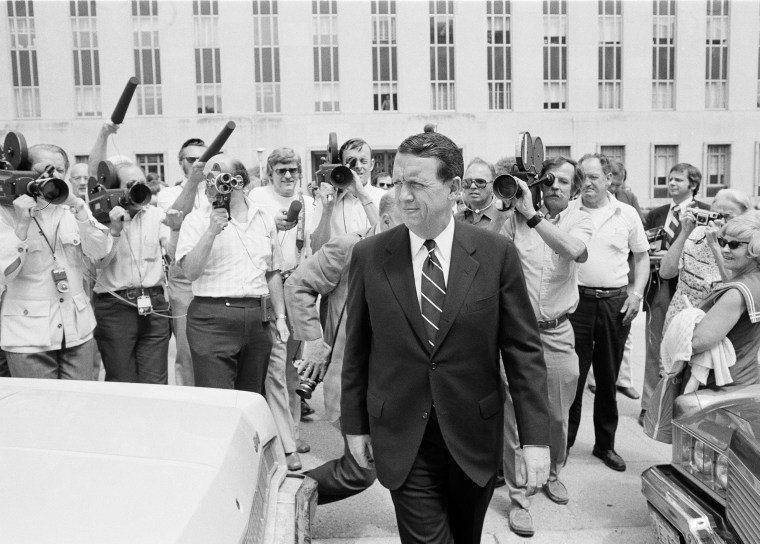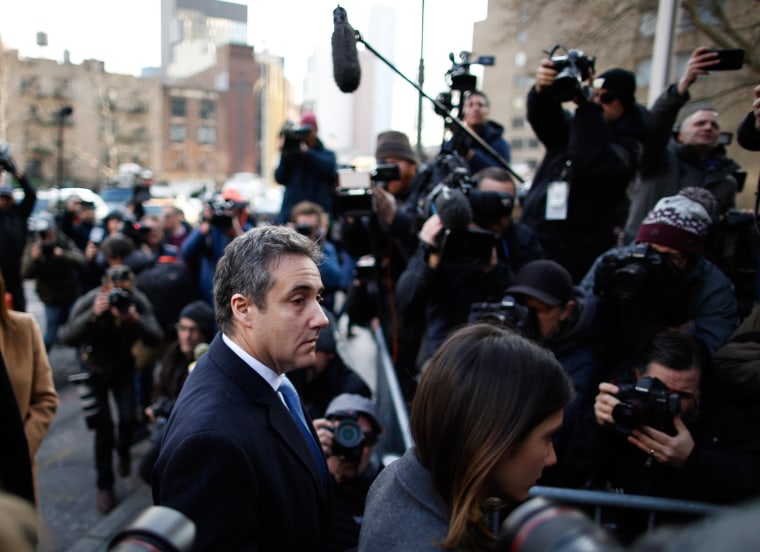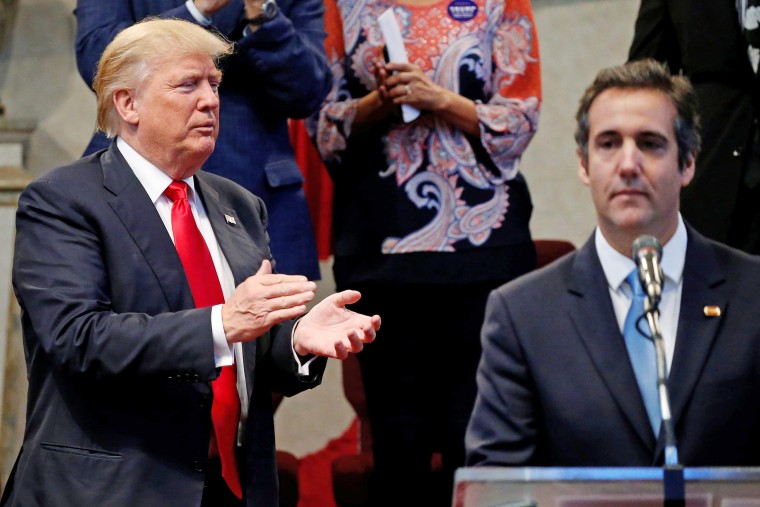Parallels between Robert Mueller’s investigation of Donald Trump’s campaign and the Watergate investigation of Richard Nixon grow starker with each new disclosure — from his demonization of the media, to firing key Justice Department investigators, to dangling pardons to witnesses, to engaging in nefarious efforts to ascertain what investigators know. Now, we can add campaign finance violations to that list.
Michael Cohen, Trump’s personal lawyer, has been sentenced to three years in prison after pleading guilty to arranging hush money payments to prevent Stormy Daniels and Karen McDougal from disclosing the seamy details of their affairs with Trump before the 2016 election. Federal prosecutors in New York left no doubt that they believe that Trump — identified as Individual 1 — was complicit in Cohen’s acts.
But as serious as felony campaign law violations are, they are part of a background mosaic of lawlessness by Trump rather than the “high crimes and misdemeanors” that the constitution defines as impeachable offenses — just as it was with Nixon.
Nixon’s campaign disclosure violations were more prosaic than Trump’s scheme to hide his tawdry extramarital affairs. The House Judiciary Committee in 1974 investigated contributions to the Nixon campaign by three dairy farmer organizations, as well as a White House scheme to obtain a $400,000 campaign contribution from ITT after the federal government settled an anti-trust suit against the company. Neither inquiry resulted in criminal convictions nor were they the basis of any of the articles of impeachment approved by the committee.
But, like Trump, Nixon had also used his personal lawyer Herbert Kalmbach to funnel payments to buy silence from those who could implicate the president. And those payments were a linchpin of the obstruction of justice article of impeachment.
Immediately after the Watergate burglary, Kalmbach transferred Nixon re-election campaign funds (along with additional money from an individual donor) to Anthony Ulasewicz, who clandestinely delivered envelopes and brown bags containing $187,500 in cash to Watergate defendants and their lawyers from July through September 1972.

After that Kalmbach stopped participating in the payment scheme. He later testified to the Watergate committee that he thought the payments for the defendants’ legal defense and living expenses were legal and he was not criminally charged for those actions.
(In February 1974, though, Kalmbach pled guilty to a felony for illegal fundraising in the 1970 midterm election and promising an ambassadorship in return for a $100,000 donation. He served six months in prison.)
Just as Cohen’s actions were intended to prevent two women from talking about their sexual relations with Trump, it became clear that, whatever Kalmbach thought, Nixon authorized hush money payments to convicted Watergate burglars to secure their silence.
Specifically, on August 4, 1972 — while Kalmbach was arranging payments — John Ehrlichman, Nixon’s top domestic adviser, told Nixon that his campaign treasurer, Hugh Sloan, had taken the Fifth Amendment because of “technical violations of the Campaign Spending or Campaign Financing Acts.” Following that, the prosecutors granted Sloan immunity to testify.
In the White House tape recording, Ehrlichman added: “And what he did in keeping unreported cash and handing it out [to Gordon Liddy, for his “intelligence” activities and “dirty tricks”] and so on is a violation. There is no question about that.”
In November 1972 after his conviction for the Watergate break-in, Howard Hunt demanded yet more money than he’d gotten from Kalmbach, telling White House aide Charles Colson in a recorded conversation that “we’re protecting the guys who are really responsible.” Between then and March 21, 1973, Hunt and his attorney received $132,000 more from Nixon’s campaign funds.
In a March 21, 1973 meeting, White House counsel John Dean then told Nixon that another million dollars would be needed to keep Hunt and the others quiet, and payments would “compound the obstruction-of-justice situation.”
Nixon is famously heard on tape telling Dean, “[If] you need the money… you could get a million dollars. And you could get it in cash. I, I know where it could be gotten.”
Nixon’s hush money payments were later a critical element of the House Judiciary Committee’s findings that Nixon should be impeached for obstruction of justice. In its final report, the committee found that Nixon had done so by “approving, condoning, and acquiescing in, the surreptitious payment of substantial sums of money for the purpose of obtaining the silence or influencing the testimony of witnesses” and others.

While both Trump and Nixon used their personal attorneys to orchestrate hush money payments to buy the silence of those with damaging information about them, a telling difference yet remains. Those silenced by the Nixon administration were witnesses in a criminal proceeding and the payments obstructed the investigation. These payments to the women orchestrated by Cohen did not obstruct an ongoing criminal investigation — but, perhaps, they did something worse.
On the same day as the Cohen sentencing, the U.S. Attorney in New York announced a non-prosecution agreement with American Media, Inc. (the publisher of the National Enquirer), and issued a statement: “AMI admitted that it made the $150,000 payment in concert with a candidate’s presidential campaign, and in order to ensure that [McDougal] did not publicize damaging allegations about the candidate before the 2016 presidential election.”
Rather than sabotaging a criminal prosecution, Cohen (on behalf of Trump) was sabotaging an informed electorate just before the 2016 election.
Even so, the campaign finance felony in which Cohen has implicated Trump will not be at the forefront of any impeachment inquiry.
Russian collusion, the firing of FBI Director James Comey, the false testimony of Trump associates (proven and possibly yet to be proven) to FBI agents and congressional committees, Trump’s dangling of pardons and his public lies will be at the heart of any impeachment inquiry. The criminal campaign finance violations will simply corroborate the corrupt intent behind it all.



